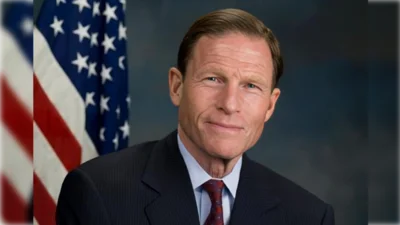Congresswoman Marcy Kaptur (D-OH), Chair of the Energy and Water Development, and Related Agencies Appropriations Subcommittee, delivered the following remarks at the Subcommittee's hearing on the Department of Energy's role in addressing climate change:
We are here to discuss the topic of climate change - a global issue that challenges our ability to sustain life on earth. Our job in Congress is to frame the magnitude of this challenge and provide a practical pathway forward that is regionally sensitive.
Ninety-seven percent of scientists agree that the earth is warming at an unsustainable rate and that humans - and human activity - are the primary cause. We see the impacts of this every day - from the growing intensity of extreme weather events like recent wildfires in California to increasingly powerful hurricanes along the Gulf and East coasts. Glaciers and sea ice are melting at historic rates. Our oceans are warming and acidifying. It is dangerous to ignore these facts, and if we fail to work together to address this crisis, it is to our collective peril.
In my district, impacts can be seen in record rainfall and the rising water levels of the Great Lakes - now at a 124-year high, including Lake Erie, which broke records in September and is currently over two feet higher than long-term averages. In 2014, a massive harmful algal bloom resulting from nutrient runoff from the largest watershed in the Great Lakes forced the City of Toledo to shut off its water supply. For days, hundreds of thousands of people could not drink, bathe, or cook with tap water.
Globally, we must commit to addressing these new challenges by engaging the world though the Paris Climate Agreement. Unfortunately, the President continues the destructive process of withdrawing from this Agreement, without any backup plan in place. As the second largest global emitter of harmful gases, producing nearly one-fifth of all global emissions, our withdrawal will have significant consequences on our environment, public health, and economy.
However, we are lucky to have the Department of Energy, the federal government’s leading agency for research and development of new clean energy technologies, within this Subcommittee’s jurisdiction. Technologies developed with DOE funding are already helping address climate change. Decades of investment have driven down the prices of wind, solar, energy storage, and efficient lightbulbs by 59 to 94 percent in the last 10 years, leading to widespread deployment and consumer savings. But there is more work to be done.
Continued robust investments in DOE programs will create new tools to prevent and reverse the impacts of climate change, while boosting our economy and creating good paying jobs across every state. Currently, there are more Americans in energy efficiency jobs than waiters and waitresses across the country. We must continue to transition not just sectors but people and communities. Additionally, as clean energy becomes cheaper, consumers can save their hard-earned dollars by paying less for the energy they use.
We must undertake mitigation now, but we also must pursue future energy innovation. DOE’s research agenda achieves the next series of breakthroughs in clean energy which is vital to saving our planet. As the rest of the world continues to act and to innovate, the U.S. must be a technology leader, or we will be left behind.
Source: U.S. Department of HCA









